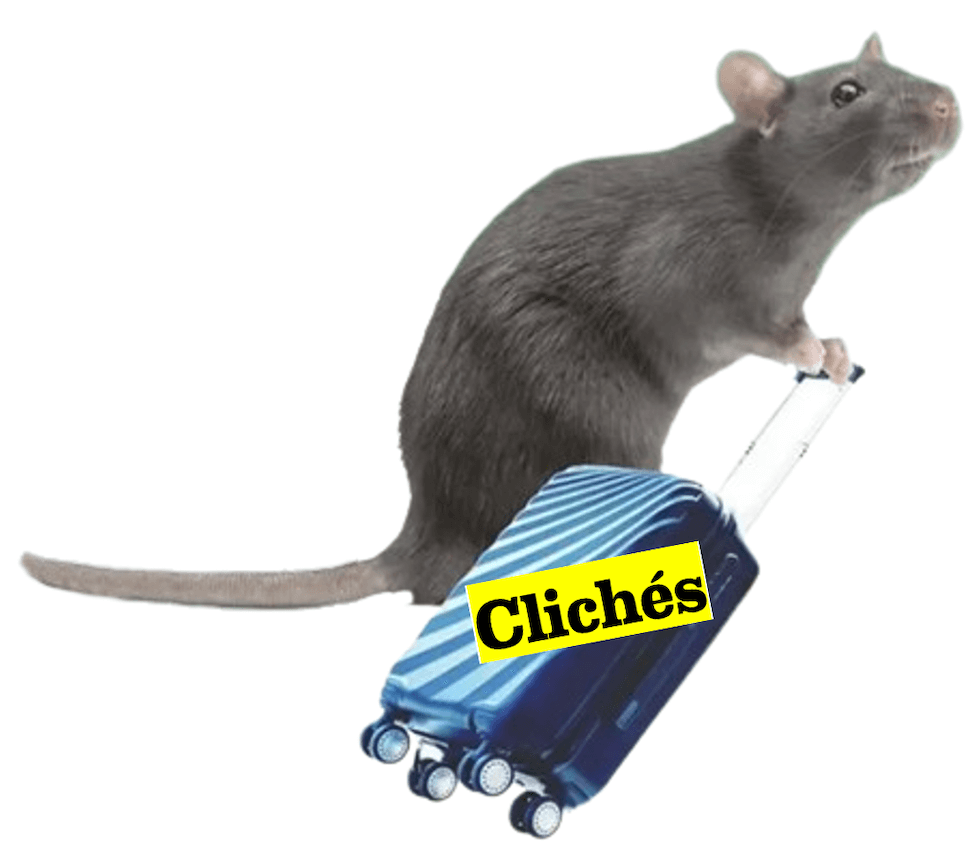
Baltimore and San Francisco have Food Czars. London has a Night Czar. In New York City, recently, we’ve got a Czar too: a Rat Czar, whose sole mission is to eradicate unwanted vermin.
I, too, have been similarly single-minded in advocating for eradication. And I’m not alone. Writing teachers, the authors of craft books, and apparently the editor in chief of The Atlantic—we’ve all vowed to rid the world of the scourge of clichés.
And look, we’re not wrong. Clichés —sayings so overused they’re flatter than the wonton wrappers on the spring rolls I over-ate Friday night — suck the fresh air out of your writing. They make it stale.
So we shouldn’t be surprised when our fellow writers read their own stories and are dismayed to discover phrases like “time heals all wounds,” “dumb as a box of hair,” or “bright as a shooting star.” In class, students beat themselves up if just one slips into their work after a 10-minute writing exercise.
Here’s the thing: When we’re telling you to exterminate clichés, we mean in the final draft.
Sometimes, early on, it’s OK to let the rats into your kitchen, so to speak.
Because clichés can be our friends.
I don’t have research to back this up, so this might end up being the most crack-potty of my many crackpot hypotheses, but I believe that clichés are signals from our subconscious. They’re surveyors’ stakes, saving your place so that when you’ve finished pouring out your story, you find your way back to where rich deposits of meaning lay buried, and dig.
Let’s say you write in an early draft “slippery as a fish.” Perhaps your subconscious wants you to stop and smell the slime. Maybe it wants you to consider why a character can’t hold what’s slippery. Perhaps it’s figurative, and the reason something is hard, or elusive, is critical to your story.
A cliché like that is doing you a favor, as long as you don’t let it linger.
The late comedian and author Bob Smith once gave me a page from a draft of his novel Remembrance of Things I Forgot. Bob was trying to work out one sentence, describing a character’s smile. And instead of deleting each attempt that he rejected, he kept them, filling a single-spaced page of all of his misfires. Several of those early tries are straight up clichés. Real clunkers, too. We’re talking banana peels and ice skates.
But as you read, you can see Bob zeroing in on the clichés, pulling them apart, writing fresh takes in the same vicinity, until, finally, he arrives at the just-right one. Take a look here, and you’ll see what I mean.
It’s how we should all approach clichés. It’s not about keeping the rats out of the kitchen. It’s about being vigilant, and not letting them get too comfortable.

Kelly Caldwell
Dean of Faculty


